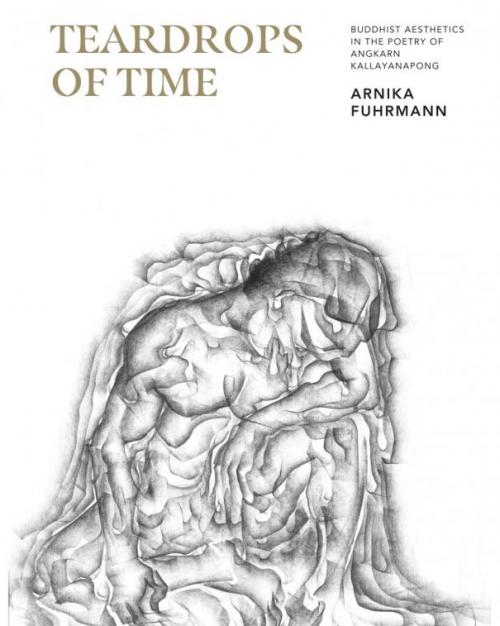Thailand was swept into tides of regional and global change during the second half of the 20th century, according to Arnika Fuhrmann, associate professor of Asian Studies in the College of Arts and Sciences. Thai poet Angkarn Kallayanapong (1926-2012) responded to this dramatic economic and cultural change in his 1969 poem “Time is Life.”
“Greedy, infatuated, insatiable, crazy for wealth/The spirit, sorrowful, disintegrates/The glow of life adverse diminishes/Lacking dignity, the glow of the heart is lost,” the poet wrote, admonishing the reader to “Awake, arise and seek value.”
In “Teardrops of Time: Buddhist Aesthetics in the Poetry of Angkarn Kallayanapong,” Fuhrmann places this Thai poet among the most significant of the 20th century, arguing that his poetry adapts Buddhist principles to “re-enchant,” through art, a Thailand and Southeast Asia depleted by modernization during his lifetime.
“As a piece of modern Thai poetry, ‘Time is Life’ stands out in that it incorporates all at once a critique of the contemporary world, an expansive ontology that includes the cosmos and a Buddhist-informed reparative vision,” Fuhrmann wrote. “The idea that Buddhism might perform functions other than those of religious pedagogy or philosophy is still a novel one.”
Kallayanapong wrote primarily from the 1940s to the 1980s, with most of his writing published at the height of the Cold War, Fuhrmann said, during a time of predominant U.S. influence and, later, of Japanese economic engagement in Thailand.
“The poet begins to write with regularity in the 1950s,” Fuhrmann wrote, “the beginning of a period of authoritarian, developmentalist rule under Field Marshall Sarit Thanarat (1953-63), foundational for structures of government in subsequent decades.”
Throughout his poetry, Kallayanapong applies Buddhist principles—particularly concerns about time—to offer a “Buddhist-informed reparative vision,” Fuhrmann wrote, to a Thai culture being swept up into globalism.
“The theme of time emerges as an overriding concern,” Fuhrmann wrote. “In these works, time becomes the trope that unifies the poet’s aesthetic, historical and ethical concerns. The poet works through quandaries regarding time in the ontological sense of ‘what is time?’ and in the sense of ‘how much time do I have in the face of time’s passing?’ ”
Kallayanapong is also preoccupied with the role art plays in life, Fuhrmann said, and the endurance of the arts within time.
“Angkarn’s poetry … constantly oscillates between the injunction to adhere to Buddhist principles and heed the law of impermanence—and his desire to transcend impermanence for the sake of producing lasting, ethical work,” Fuhrmann wrote. “The problem is never entirely resolved, and this produces the tension that gives his poetry its contemporaneous and ethical-philosophical charge.”
Fuhrmann compares Kallayanapong to Romanian-born poet Paul Celan (who wrote in German) and American beat poet Allen Ginsberg. Ginsberg translated three of Kallayanapong’s poems into English, Fuhrmann wrote; she dedicates a chapter to their interaction.
In five analytical chapters, Fuhrmann examines how Kallayanapong’s poetry engages fundamental problems in Buddhist thought about temporality to propose desirable ontologies for the present; draws on historical temporalities to furnish modern ethical and aesthetic standards; debates the status of the modern subject in time; introduces a novel poetic language to address the vicissitudes of Thai modernity; and how the poet’s cultural critique and formal innovation produce a lyrical postcolonial politics that engages global concerns.
“With the aid of these building blocks,” Fuhrmann wrote, “Angkarn shapes a comprehensive poetic and philosophical framework for the Thai present.”






